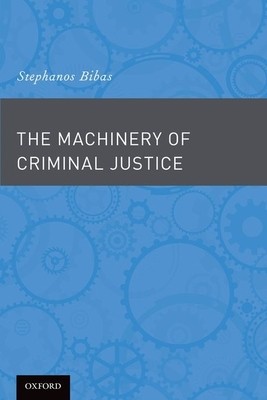
- We will send in 10–14 business days.
- Author: Stephanos Bibas
- Publisher: Oxford University Press, USA
- ISBN-10: 019023928X
- ISBN-13: 9780190239282
- Format: 15.2 x 23.1 x 2.5 cm, softcover
- Language: English
- SAVE -10% with code: EXTRA
Reviews
Description
Two centuries ago, American criminal justice was run primarily by laymen. Jury trials passed moral judgment on crimes, vindicated victims and innocent defendants, and denounced the guilty. But since then, lawyers have gradually taken over the process, silencing victims and defendants and, in many cases, substituting plea bargaining for the voice of the jury. The public sees little of how this assembly-line justice works, and victims and defendants have largely lost their day in court. As a result, victims rarely hear defendants express remorse and apologize, and defendants rarely receive forgiveness. This lawyerized machinery has purchased efficient, speedy processing of many cases at the price of sacrificing softer values, such as reforming defendants and healing wounded victims and relationships. In other words, the U.S. legal system has bought quantity at the price of quality, without recognizing either the trade-off or the great gulf separating lawyers' and laymen's
incentives, values, and powers.
EXTRA 10 % discount with code: EXTRA
The promotion ends in 17d.02:14:25
The discount code is valid when purchasing from 10 €. Discounts do not stack.
- Author: Stephanos Bibas
- Publisher: Oxford University Press, USA
- ISBN-10: 019023928X
- ISBN-13: 9780190239282
- Format: 15.2 x 23.1 x 2.5 cm, softcover
- Language: English English
Two centuries ago, American criminal justice was run primarily by laymen. Jury trials passed moral judgment on crimes, vindicated victims and innocent defendants, and denounced the guilty. But since then, lawyers have gradually taken over the process, silencing victims and defendants and, in many cases, substituting plea bargaining for the voice of the jury. The public sees little of how this assembly-line justice works, and victims and defendants have largely lost their day in court. As a result, victims rarely hear defendants express remorse and apologize, and defendants rarely receive forgiveness. This lawyerized machinery has purchased efficient, speedy processing of many cases at the price of sacrificing softer values, such as reforming defendants and healing wounded victims and relationships. In other words, the U.S. legal system has bought quantity at the price of quality, without recognizing either the trade-off or the great gulf separating lawyers' and laymen's
incentives, values, and powers.


Reviews